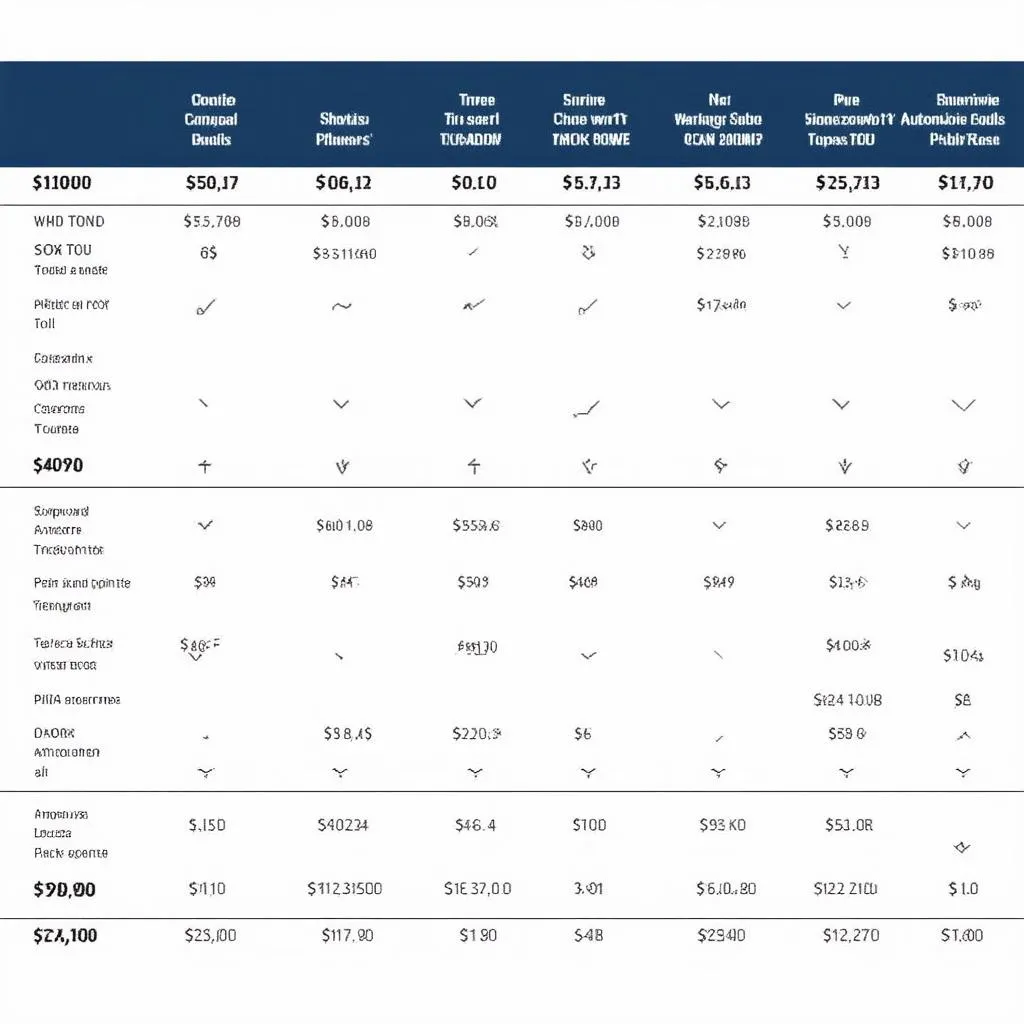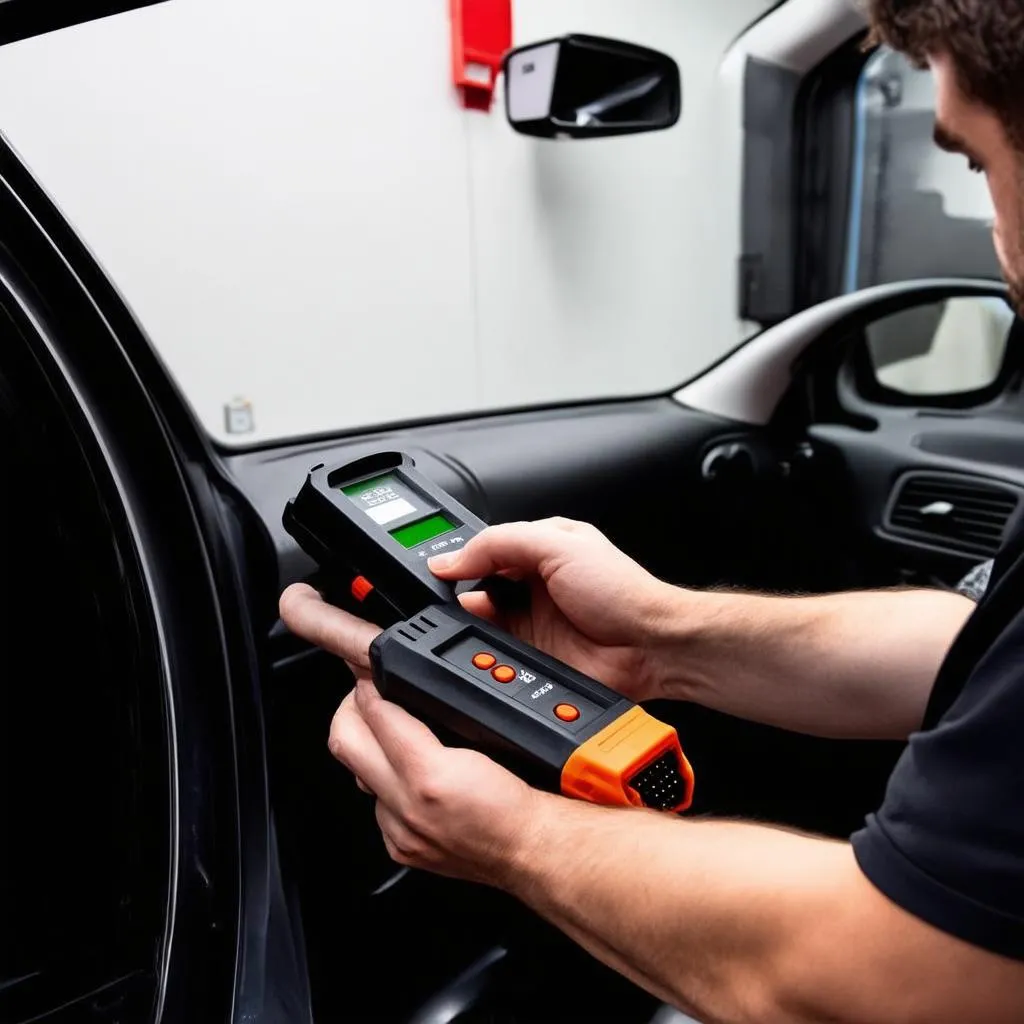Picture this: It’s a sunny Saturday morning, and you’re all geared up to finally tackle that pesky check engine light that’s been glaring at you for weeks. You pop the hood, ready to channel your inner mechanic, but then reality hits – modern cars are complex! Without the right diagnostic tool, you’re basically flying blind.
Finding the best automotive scan tool for a home mechanic can feel like navigating a maze. Don’t worry; we’re here to be your guide. In this article, we’ll break down everything you need to know, from understanding the jargon to choosing a scanner that fits your needs and budget.
Why You Need a Quality OBD2 Scanner
Before we dive into the specifics, let’s address the elephant in the room: Do you really need an automotive scan tool? The answer, in most cases, is a resounding yes!
Think of it this way: a scan tool is like a window into your car’s computer system. It allows you to:
- Read and clear trouble codes: Decipher those cryptic check engine lights and understand what’s wrong with your vehicle.
- Monitor live data: Get real-time insights into your car’s performance, like engine speed, coolant temperature, and oxygen sensor readings.
- Run diagnostics: Perform specific tests on various systems, such as ABS, airbags, and transmission, to pinpoint issues.
Without a scanner, you’re left to guesswork and potentially expensive trips to the mechanic for even minor problems.
Factors to Consider When Choosing a Scan Tool
Now that you understand the importance of having an OBD2 scanner let’s look at the key factors to consider when choosing the right one for you:
1. Your Vehicle Compatibility
Not all scan tools are created equal. Some are designed for specific makes and models, while others offer broader compatibility.
- Vehicle-Specific Scanners: If you own a European car like a BMW, Mercedes, or Audi, you’ll likely benefit from a dealer-level scan tool designed for your make. These offer advanced functions and access to manufacturer-specific codes.
- Universal OBD2 Scanners: For most home mechanics working on a range of vehicles, a universal OBD2 scanner is a versatile choice. These can read generic codes across most makes and models from 1996 onwards.
Pro Tip: Always double-check the scanner’s compatibility with your car’s make, model, and year before purchasing.
2. Your Technical Skill Level
Scan tools come with varying levels of complexity.
- Basic Code Readers: Ideal for beginners, these affordable devices can read and clear basic trouble codes.
- Mid-Range Scanners: Offer more features like live data streaming, freeze frame data, and some bi-directional controls for basic tests.
- Professional-Grade Scanners: Packed with advanced features like module coding, programming, and access to all vehicle systems. These are best suited for experienced DIYers or professional mechanics.
Remember: Don’t feel pressured to buy the most advanced tool. Start with something that aligns with your current skill level and gradually upgrade as your knowledge grows.
3. Your Budget
Scan tools range in price from under $50 to over $1000. Set a realistic budget beforehand and consider what features are essential for your needs.
Don’t be fooled by extremely cheap scanners. Invest in a reputable brand with good reviews to ensure accuracy and reliability.
 Automotive scan tool comparison
Automotive scan tool comparison
Top Recommended Scan Tools for Home Mechanics
To give you a head start, here are a few popular options that cater to different needs and budgets:
1. ANCEL AD310 Classic Enhanced Universal OBD II Scanner
- Best for: Beginners and budget-conscious users
- Key Features: Reads and clears codes, displays live data, I/M readiness, and vehicle information.
- Price: Affordable
2. BlueDriver Bluetooth Pro OBD2 Diagnostic Scan Tool
- Best for: DIYers who prefer a smartphone interface
- Key Features: Wireless connectivity, enhanced diagnostics, repair reports, and access to a vast database of code definitions.
- Price: Mid-range
3. Autel MaxiCOM MK808BT Diagnostic Scanner
- Best for: Experienced home mechanics looking for advanced functionality
- Key Features: Comprehensive system coverage, bi-directional controls, coding and programming capabilities.
- Price: Higher-end, but worth the investment for serious DIYers
Remember: This is just a starting point. Research and compare different models to find the perfect fit for your needs.
Common Questions About Automotive Scan Tools
1. Can I use a scan tool on any car?
While universal OBD2 scanners can work on most cars from 1996 onwards, some vehicles might require manufacturer-specific tools for certain functions.
2. Will a scan tool fix my car?
A scan tool is a diagnostic tool, not a magic wand. It helps you identify problems but doesn’t fix them automatically.
3. Do I need to be a mechanic to use a scan tool effectively?
Not at all! Many scan tools are user-friendly, even for beginners. Plenty of online resources and tutorials can help you get started.
 Home mechanic using OBD2 scan tool
Home mechanic using OBD2 scan tool
Need Help Choosing the Right Scan Tool?
Choosing the right diagnostic tool can be overwhelming, but it doesn’t have to be. We’re here to help! Contact our team of automotive experts at WhatsApp: +84767531508 for personalized guidance. We can answer your questions, recommend the best scanner for your needs, and even assist with installation and software setup.
Take Control of Your Car’s Health
Investing in the best automotive scan tool for your home mechanic needs empowers you to take control of your car’s maintenance and repairs. By understanding the codes, monitoring performance, and catching issues early on, you can save time, money, and avoid those dreaded trips to the mechanic.
Do you have any other questions about automotive scan tools? Share them in the comments below! And don’t forget to check out our other informative articles on car maintenance and repair here on Diag XCar.
For more insights into automotive code readers and scan tools, explore these resources:


